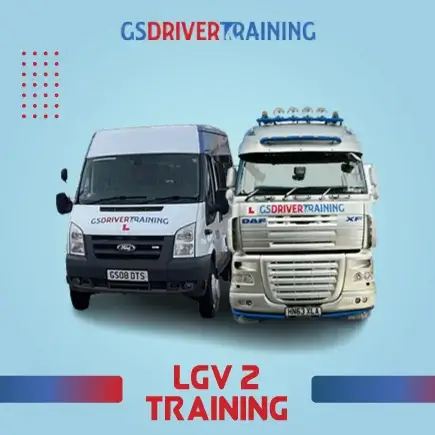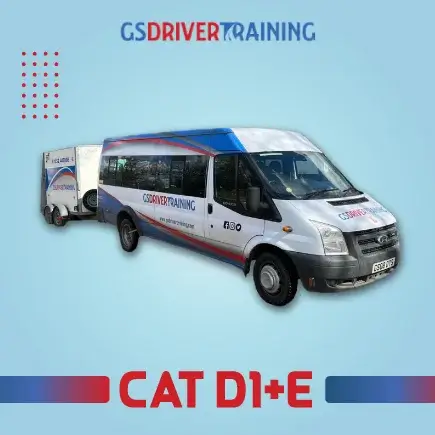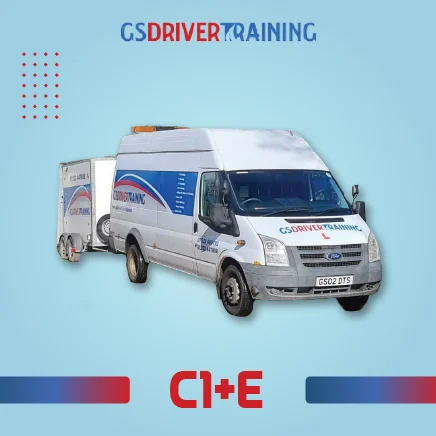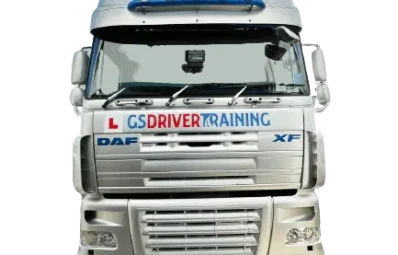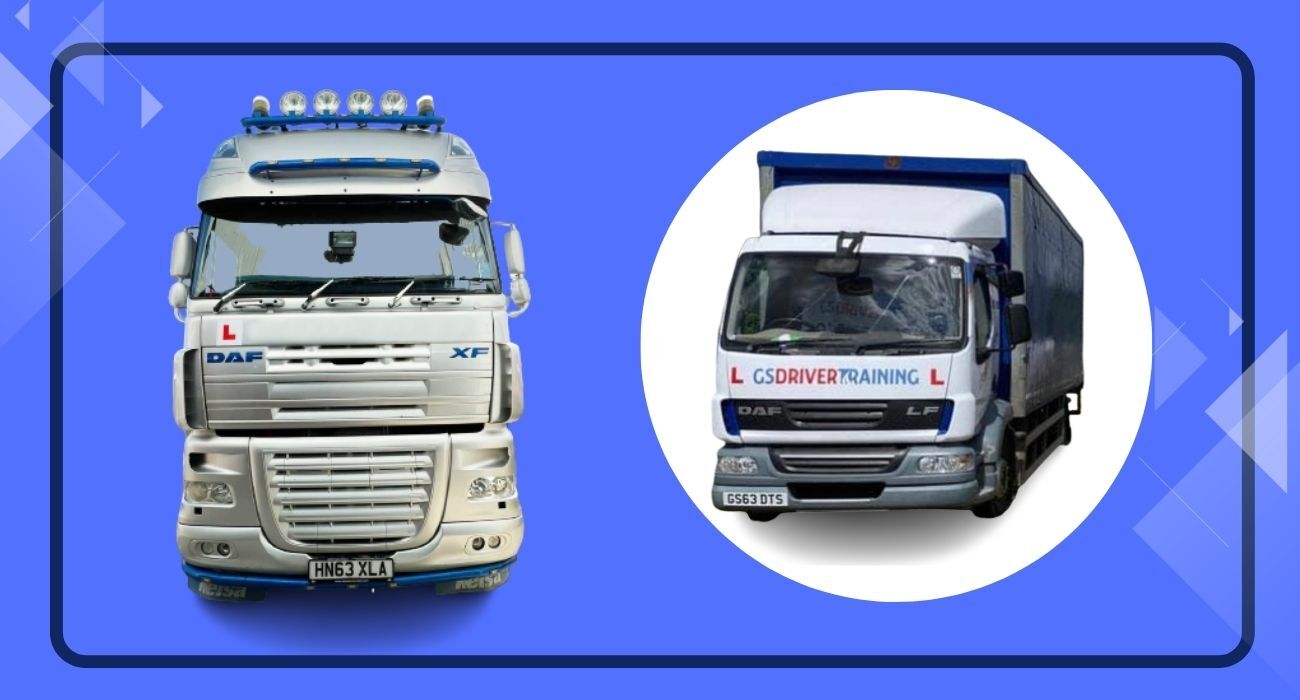
If you are applying for a HGV licence, there are a few tips that you can keep in mind to make the process easier. First, you should obtain a provisional HGV licence to apply online. You will need to fill out a D2 form and an accompanying D4 form, which will require you to have a medical examination by your doctor. This medical examination will assess your fitness to drive and your vision. Once you have received your provisional licence, you can take the HGV Theory Test. You may even use an online tutorial to help you prepare for the Theory Test. Finally, you will be able to apply for your full licence online. Researching the requirements for an HGV licence and preparing for the exams can save time and stress when applying for your licence.
Free HGV Training
If you're looking for ways to build a career in logistics, free HGV training may be an ideal solution. Army and RAF apprenticeships are one way of obtaining qualifications for a HGV or PCV licence. Logistics UK is a source of free advice and guidance for anyone looking to join the industry, and the armed forces offer an invaluable chance to gain experience and qualifications. With the proper training, you can develop the skills to make a successful career in the logistics industry.
Army apprenticeships
RAF apprenticeships
What is a HGV/PCV licence?
An HGV (Heavy Goods Vehicle) licence and a PCV (Passenger Carrying Vehicle) licence are two types of Driver Qualification Cards which allow holders to drive goods vehicles and passenger vehicles, respectively. These cards are issued by the Driver and Vehicle Standards Agency (DVSA).
They are only granted after drivers have passed specific tests to demonstrate safe driving skills and knowledge of the relevant regulations. A HGV licence is also known as a Category C licence, and a PCV licence is a Category D licence. It is essential to have the correct licence for the type of vehicle you will be driving, and failure to do so could result in severe penalties.
National Vocational Driving Instructor Register (NVDIR)
Benefits of applying for a HGV/PCV licence
UK is short of 45,000 HGV drivers.
Gaining a Heavy Goods Vehicle (HGV) or Public Carrying Vehicle (PCV) licence can be hugely beneficial for various reasons. Here, we look at some of the advantages of holding either type of licence. The most obvious benefit of holding either licence is that it can open the door to various jobs in the road transport, logistics and warehousing industries. These are roles where HGV or PCV licence holders can earn competitive salaries so that it can be an excellent option for people looking for a new career or challenging roles.
In addition, many employers are always looking for experienced HGV/PCV licence holders who can demonstrate that they have had proper training and take their responsibilities seriously. Therefore, if you demonstrate your capabilities in this area, you will likely be in high demand in the job market. Finally, taking the necessary training and obtaining an HGV/PCV licence can be very rewarding for both personal and professional reasons. It can open up options to travel to different parts of the country, experience different locations, and create career possibilities that may not have been available before. So, if you're considering applying for an HGV/PCV licence, it is a great career move with many potential benefits.
Eligibility Criteria
Any individual wanting to become a driver of heavy goods vehicles (HGV) or passenger-carrying vehicles (PCV) must meet the eligibility criteria set by the Driver and Vehicle Standards Agency (DVSA). The criteria include:
- Holding a valid HGV or PCV provisional licence.
- Completing a D4 form and D2 form.
- Passing a driver medical examination.
- https://www.gsdrivertraining.com/drivers-guide-to-obtaining-an-artic-lorry-licence
To be eligible for an HGV or PCV provisional licence, applicants must be at least 18 years of age and have held a full UK car driving licence for at least one year prior. The D4 form must be completed to confirm the applicant's medical fitness. Information on medical conditions such as sight, hearing, drug abuse, and mental and physical health are collected on this form. The D2 form must also be completed, which contains a medical questionnaire and any other medical document required by the DVSA.
Both forms must be filled in by the applicant and assessed by a doctor before they can proceed to a driver's medical examination. This examination usually takes place in an approved clinic, and a fee is applicable. Upon passing the test, applicants will receive their HGV or PCV licence and be qualified to drive on the road. It is important to note that any previous medical issues must be disclosed on the D4 form and D2 form for applicants to be successful in their HGV and PCV medical examinations.
Age Requirements
One of the most frequently asked questions about driving in the UK is what age you must be to obtain a provisional licence for a Heavy Goods Vehicle (HGV) or a Passenger Carrying Vehicle (PCV). The age requirements for obtaining a provisional for both categories of vehicles are stringent. For an HGV, applicants must be aged 18 or over, and for a PCV, the minimum age limit is 21.
In order to obtain either licence, applicants must provide documentary evidence of their identity, be a resident of the UK, and pass an eyesight test. It is also essential to be aware that provisional licences for either an HGV or a PCV are only valid once the driver reaches the DSA Theory Test pass mark. Finally, it is worth noting that HGV and PCV drivers must be physically fit to drive and keep up to date with their medical entitlement clearance every five years.
There may also be additional requirements for drivers, so it is worth checking the government website for more information. In summary, in order to obtain a provisional licence for either an HGV or a PCV, applicants must meet the minimum age requirements, provide all the necessary documents, and pass an eyesight test. It is also essential that all drivers remain fit to drive and keep up to date with the relevant clearance.
UK Residency
When applying for residency in the UK, it is important to understand the distinction between HGV and PCV provisional residency. HGV (Heavy Goods Vehicle) provisional residency is granted to non-EEA/EU citizens who wish to become lorry, bus or coach drivers in the UK, who are aged between 18-65 with a valid licence and who have passed the required medical tests. This residency lasts for a maximum period of 1 year and will need to be renewed prior to expiration.
PCV (Public Carriage Vehicle) provisional residency is granted to non-EEA/EU citizens who wish to become licensed taxi drivers in the UK. It is granted subject to the applicant meeting various criteria, including age requirements, holding a valid license and having passed the necessary medical tests. This residency also lasts for a maximum of 1 year and must be renewed before the expiry date. In both cases, applications must be made to the relevant local authorities. When applying, it is important to demonstrate that you have the necessary skills and knowledge for the licence being applied for. Questions regarding these applications can be obtained from official UK governmental websites.
Driving experience
If you are looking to drive a large goods vehicle (LGV) or a passenger-carrying vehicle (PCV), then you must first obtain a Provisional Entitlement for either or both. To gain a Provisional Entitlement for an LGV or PCV, you must hold a valid UK driving license and be aged 18 or older. In addition to this, applicants must pass both a qualification theory test and a driver CPC case study test. Before you can drive any LGV or PCV vehicle on the road, you must now undertake the Initial Driver CPC period and the Initial Vehicle Tests and Certificates. Our Assigned Risk Score determined through a completed Medical form provided through your local Driver Medical Examiner Service, DVLA, or D4 test will also be a requirement when applying for either Class of Driver's Licence.
You are also now required to undertake a Basic Driver CPC course prior to your Initial Driver CPC. To ensure you have the necessary skills to safely operate the vehicle in a safe manner whilst following strict Health and Safety and Working Practices, an on-vehicle assessment is essential for the qualification of the licence. Once you have enhanced both your theory and practical knowledge and ability, you can begin your driving career. Good luck.
Application Process
If you wish to apply for an HGV or PCV licence, you need to be aware of the application process. You must fill in a DVLA D4 form. Click here to order a D2/D4 form pack. and have a medical examination. Furthermore, if you already have a full driving licence, you must renew it in order to be eligible for a bus or lorry driver's licence. The DVLA will provide further information about the minimum age requirements for applying regarding your medical and ancillary tests - but be aware that if you fail any of these tests, you must start the entire application process again. Fortunately, there are numerous websites that can help you with the application process each step of the way to ensure that you become a qualified lorry or bus driver in the most efficient manner.
Required Documents
If you are planning to apply for a Heavy Goods Vehicle (HGV) or Passenger-carrying Vehicle (PCV) licence in the UK, then it is important to make sure you have all the necessary documentation in place. You will need a completed D2 and D4 form, together with a valid UK Driving Licence and a current medical certificate. Having these documents ready in advance will help to ensure that your application is successful and reduce potential delays.
Application form overview
When applying for an HGV to PCV licence, you must complete the two application forms, D2 and D4. These forms are available from your local Post Office or DVLA office. The D2 form provides the DVLA with all your personal, medical and educational details, and when completed, it is sent to the DVLA with your UK driving licence and £45.00 fee. The D4 form is a medical form that you must take to your doctor to complete and then send to the DVLA. You can also download a checklist from the DVLA to ensure that your application is complete. Once you have sent your application to the DVLA, they will assess whether you are eligible for the licence and contact you with the outcome.
Renew Driving Licence Medical
If you need to renew a driver's licence for a Heavy Goods Vehicle (HGV) or a bus, you must submit a medical report. Depending on the type of vehicle, this may be a DVLA Group 2 Medical Examination. You will also be required to provide documentation about any relevant medical conditions. It is important to remember that driver medicals must be completed by occupational health professionals, who can be found on the DVLA's approved list of medical practitioners.
You may also find it helpful to read the DVLA's guide to help you decide if you need a medical for your licence. These reports must be completed according to the regulations set out by the DVLA. Any failure to adhere to the standards may result in your licence being refused or revoked. If you are unsure of what documents you need to submit to renew your licence, don't hesitate to get in touch with the DVLA or your occupational health professional for further advice.
Theory and Practical Tests
For those looking to apply for a UK driving licence to either operate Heavy Goods Vehicles (HGVs) or Passenger Carrying Vehicles (PCVs) in the UK, it is essential to pass a theory and practical test. For HGVs, the theory test comes in the form of a multiple-choice quiz, while PCVs require drivers to have a more in-depth understanding of road safety and hazard perception. The practical test, known as CPC Module 2, requires drivers to demonstrate their practical skills on the road and is typically administered at an approved facility and by approved examiners. It is important to ensure that you have a good understanding of the requirements before going into the test, as passing can be a challenge.
Multiple-choice Theory Test
In order to get your HGV to PCV licence, you will need to pass both theory and practical tests. The theory test consists of a multiple choice part as well as a hazard perception part. The multiple-choice part is designed to assess your knowledge and understanding of the rules of the road and to ensure that you have the necessary, safe driving skills and knowledge to drive an HGV or PCV.
The hazard perception part tests your ability to identify and respond to potential hazards on the road and requires a bit of practice beforehand. The practical test is designed to assess your ability to safely operate a HGV or PCV in a range of scenarios. The examiner will ask you to carry out various manoeuvres, such as reversing around a corner or negotiating roundabouts, and you will need to demonstrate that you can do this in a safe and competent manner. Passing both tests will give you the licence you need to start driving a HGV or PCV.
Practical tests
Once you have taken your theory and hazard perception tests for your HGV to PCV licence, you must take the two practical driver CPC modules (Mod 3a and Mod 4) and an on-road HGV driving test. Mod 3a and Mod 4 of the driver CPC can be taken at any qualified centre across the UK, while the HGV driving test can be taken in most larger towns and cities if you hold a valid HGV licence. Mod 3a is an off-road practical demonstration of vehicle safety checks, and Mod 4 is an on-road driving exercise. Once you have passed both Mod 3a and Mod 4, you can book your on-road HGV driving test to earn your HGV to PCV licence.
National Vocational Driving Instructor Register (NVDIR)
The National Vocational Driving Instructor Register (NVDIR) is a comprehensive database of qualified and registered driving instructors in the UK. Through the NVDIR, instructors can be identified by their qualifications and registration status, allowing driving learners to find a reputable driving instructor easily. The NVDIR also provides key insight into customer service, allowing learners to find the right instructor for their needs. In order to be added to the NVDIR, a driving instructor must be registered with the Driver and Vehicle Standards Agency (DVSA).
This registration requires instructors to meet the highest standards, ensuring every learner has a satisfactory learning experience. The NVDIR is notable for its ability to track the ongoing professional development of instructors and to provide up-to-date information about the instructors. The NVDIR is a valuable resource for both driving instructors and learners and provides a great foundation for a successful learning experience.
Road Haulage Association
What does the Road Haulage Association do? The Road Haulage Association (RHA) is the leading trade association for operators of goods vehicles in the UK. Our members are companies involved in the transportation of goods and materials by road, including those operating international freight services. We provide a range of services to these companies, from business advice and support to policy advocacy and representation.
Generation Logistics
Generation Logistics is a specialist logistics provider offering businesses across the United Kingdom a comprehensive array of transport solutions. Their core services include freight forwarding and full supply chain management, meaning they can provide support throughout the entire shipping process. They can also help with customs clearance, customs declarations, storage solutions and a variety of other services. With extensive experience in the industry, the dedicated team is well-placed to provide a world-class solution to any logistics requirement.
FAQ
Q: What types of licences are available?
A: The Driver and Vehicle Standards Agency (DVSA) issues several types of HGV and Public Service Vehicle (PSV) licences. These include Heavy Goods Vehicle (HGV) and Light Goods Vehicle (LGV); PSV or Passenger Carrying Vehicle; Minibus and Coach; Vehicle and Trailer Combination; and HGV and Driver CPC (Certificate of Professional Competence).
Q: Who can apply for a HGV/PCV licence?
A: Anyone aged 18 or over who has a full UK or EU driving license, has passed a medical examination and holds the relevant Driver CPC qualification (if applicable) may apply for a HGV/PCV licence.
Q: What documents will I need to apply?
A: Each applicant will need to provide documents confirming identity, residency and right to work in the UK, original passport or ID card, and a completed application form D2 (medical questionnaire) for a full medical examination. Please note you will need to provide the original documents when applying.
Q: How much does it cost to apply for a HGV/PCV licence?
A: The cost of applying for a HGV/PCV licence depends on the type of licence and tests required. The DVSA will provide the cost upon application.
Q: Are any tests or qualifications needed?
A: Yes, to apply for an HGV/PCV licence, you must have a full UK or EU driving licence, have passed an approved medical examination and hold a relevant Driver CPC qualification (if applicable).
Q: Is additional training required?
A: Depending on the type of licence you are applying for, you may require additional training or assessments. This includes an initial assessment, practical driving test, theory test, HGV driver's assessment, driver's eyesight test and a CPC module.
Q: How long does it take to process my application?
A: This may vary depending on the type of HGV/PCV licence you are applying for. Generally, the time taken to process an application is between 6-8 weeks.
Q: How can I find out more information?
A: More information can be found on the DVSA website, or you can call our customer contact centre on 0300 123 9000.
Q: How can I apply for a HGV/PCV licence?
A: You can apply for an HGV/PCV licence by completing an online application or by contacting our customer contact centre, which can provide further assistance.
Q: How can I apply for a HGV/PCV licence?
A: You can apply for an HGV/PCV licence by completing an online application or by contacting our customer contact centre, which can provide further assistance.
Q: What is a HGV/PCV licence?
A: An HGV/PCV licence is a UK driving licence that allows you to drive heavy goods vehicles (HGVs) and passenger-carrying vehicles (PCVs).
Q: Who needs to get a HGV/PCV licence?
Q: What is the Chartered Institute of Logistics and Transport?
Chartered Institute of Logistics and Transport
A: The Chartered Institute of Logistics and Transport (CILT) is an internationally recognised professional body dedicated to excellence in the transport, logistics and supply chain industries. Established in 1919, we provide opportunities for professional development and accreditation, networking and training, as well as drive policy change and innovation in logistics and transport.
Our members benefit from our extensive network of professionals, career services, events and publications. By becoming a member of CILT, individuals gain a second-to-none professional status and support. We also provide an extensive range of qualifications and services to suit all needs. With over 35,000 members in more than 95 countries, CILT connects logistics and transport professionals around the world.
A: Any UK resident who wishes to drive goods vehicles and passenger-carrying vehicles must obtain an HGV/PCV driving licence from the UK Driver and Vehicle Licensing Agency (DVLA).
Q: How do I apply for a HGV/PCV licence?
A: You will need to complete an application form and provide the required documents as part of the application process.
Q: What documents do I need to provide?
A: You will need to provide proof of identity, such as a current passport or driving licence, proof of address, such as a utility bill, proof of name change, if applicable, a completed medical report, and evidence of medical fitness, such as an eye test certificate.
Q: What is the medical requirement for a HGV/PCV licence?
A: All applicants are required to pass a medical examination before being granted a HGV/PCV licence. The medical examination should be completed by a registered doctor or qualified nurse with the correct qualifications.
Q: What are the age requirements for a HGV/PCV licence?
A: You must be at least 18 years old to be eligible for a HGV/PCV driving licence.
Q: How long does it take to get a HGV/PCV licence?
A: This will depend on the individual's circumstances and the speed at which the DVLA processes the application. Typically, applicants will receive their licence within 4-6 weeks from the date of the application.
Q: How much does it cost to apply for a HGV/PCV licence?
A: The cost of the application is determined by the DVLA and can vary depending on the application type. All fees are listed on the DVLA website.
Q: What happens if my application is refused?
A: If your licence application is refused, you may appeal the decision. You will also be given the opportunity to submit a new application or provide additional evidence to support your original application.
Q: Are there any restrictions or special conditions attached to a HGV/PCV licence?
A: HGV/PCV licence holders must keep to the conditions of their licence, which are set out in the UK Road Traffic Act. There may be additional restrictions or conditions attached to the licence depending on the particular vehicle and type of journey. Further reading at GOV.UK
Q: How do I renew my driving licence medical?
A: You need to apply for a DVLA D4 form from your doctor before you can renew your licence. More information about the medical aspects of a driving licence can be found on the GOV—UK website.
Q: How do I become a lorry driver?
A: You need to have held a Category B licence for at least two years, allowing you to drive cars and light vans. You also need to make sure your licence has a DQCK (Driver Qualification Card Kitemark). To apply for an HGV licence, you can take the Driver Certificate of Professional Competence (CPC) qualification.
Q: What is an HGV Driver?
A: HGV refers to Heavy Goods Vehicle, and a HGV Driver is someone who is licensed to drive a category C or category CE vehicle for commercial purposes. The licence must be renewed every five years, and in order to do so, you must attend Driver CPC (Certificate of Professional Competence) courses.
Q: What is the difference between a HGV and a Bus licence?
A: An HGV licence is for category C and CE commercial vehicles. This will entitle you to drive buses and coaches of any size. A bus licence is for category D commercial vehicles. Category D licences entitle the holder to drive medium-sized buses and coaches but not lorries.
Q: What qualifications do I need to become a HGV or Bus Driver?
A: You will need to take Driver CPC (Certificate of Professional Competence) and HGV tests. Depending on the type of licence you are applying for, the Driver CPC training consists of 35 hours of training, which can be completed in either 4 or 5 days. You will also need to pass a Vehicle and Safety Test.
Q: Is there an age limit for HGV or Bus Drivers?
A: You must be aged 18 or over to apply for a bus or lorry licence because both involve operating a potentially dangerous vehicle. There is no upper age limit.
Q: How long does it take to get a licence to drive a HGV or Bus?
A: It usually takes approximately four months from the date you first started your application. During this period, you need to pass your Driver CPC and HGV assessments.
Q: Is it possible to transfer an existing HGV or Bus Driver licence?
A: Yes, in certain cases, you may be able to transfer an existing HGV or Bus Driver licence from another EU country. You must contact your local DVLA office for more information.
Q: How do I prepare for a HGV or Bus Driver assessment?
A: The DVSA (Driver and Vehicle Standards Agency) website contains an extensive range of resources and information about preparing for an HGV or Bus Driver assessment.
Q: Is there a cost involved in getting an HGV or Bus Driver licence?
A: Yes, you will need to pay for the Driver CPC training as well as the HGV tests themselves. The DVSA provides a cost calculator, which will give you an estimate of how much the licence will cost.
Also Read: What's the Difference Between LGV and HGV


